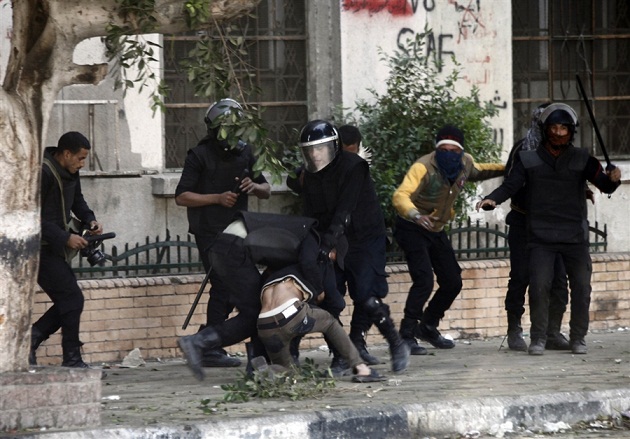Pant, pant, pant? That s all you hear these days from our football players who are about to drop dead in the middle of playing at the torrid pace of one game every three days. The reason for the compressed league schedule is to make up for the time the games stopped for two weeks when the pan-Arab Games was being held, and for the whopping 50-day holiday when the league hibernates as the national team prepares for the African Cup of Nations starting next month. The fixture pile-up is great for the fans, producing as it does almost non-stop action, but the players and their coaches are begging for mercy.
There s no doubt our players are playing too much; once a week is more like it. Structurally, internally and on the exterior, our bodies are not as tough as Europeans. We don t train as hard, we don t eat as well, the air we breathe is not as environment-friendly, and they don t live in Cairo, the stress capital of the world, a sure-fire fatigue-creator.
The result of the good life is that the average European player is able to play much more than we do. On top of domestic league and cup tournaments, if he plays on his national team, he can look forward to World Cup qualifiers, then, if he s lucky, the World Cup itself, and qualifiers for the European championships and, if he s lucky, the European championships. If he s on a top club he might also be vying for the European Champions League or the UEFA cup.
Despite the busy calendar, industrious Westerners run more (around seven kilometers a game), play more (the Egyptian league is 30 games long, the Premiership 38) and do so in freezing weather, against opponents just as hearty and over-zealous.
But abroad, they do take care not to get fatigued. They are allowed adequate rest and recovery time in-between to let the body recharge itself more effectively. Even a superbly conditioned athlete needs time off not just from the rigors of actual playing time but from all the training needed beforehand.
If you re going to push the intensity threshold button to hard, what you get, besides the walking dead, is the inability to continue playing at a given intensity. Players so tired, so fatigued, so spent, can t play as well as when they re fresh. Their movements are slower, as is their reaction time, they are more susceptible to injury, and lose focus. The mind can wander all over the place when the body signals exhaustion. It is also true that when you become tired, your focus has a tendency to turn inward and dwell on your condition. Focus that could be much better spent on match situations is wasted due to the bombardment of distractions caused by the body and mind during fatigue.
It would be great if our footballers perform our favorite sport for as long as they and we want. But who among them is a Charles Lindbergh who, following a 33-hour solo flight landed safely in France? Or a marathoner who runs 42 kilometers in a little over two hours, or worse, trains for a marathon? Ten kilometers a day is just breaking sweat? Ironically, when our players are given too much of a break, like the one coming up, and the teams they play on lose or the level drops, the coaches blame, among many, many things, the extended time-off, claiming it makes the player rusty. So either way, whether our players play too much or play too little, they stand to lose. In Egyptian football, you can t win.


